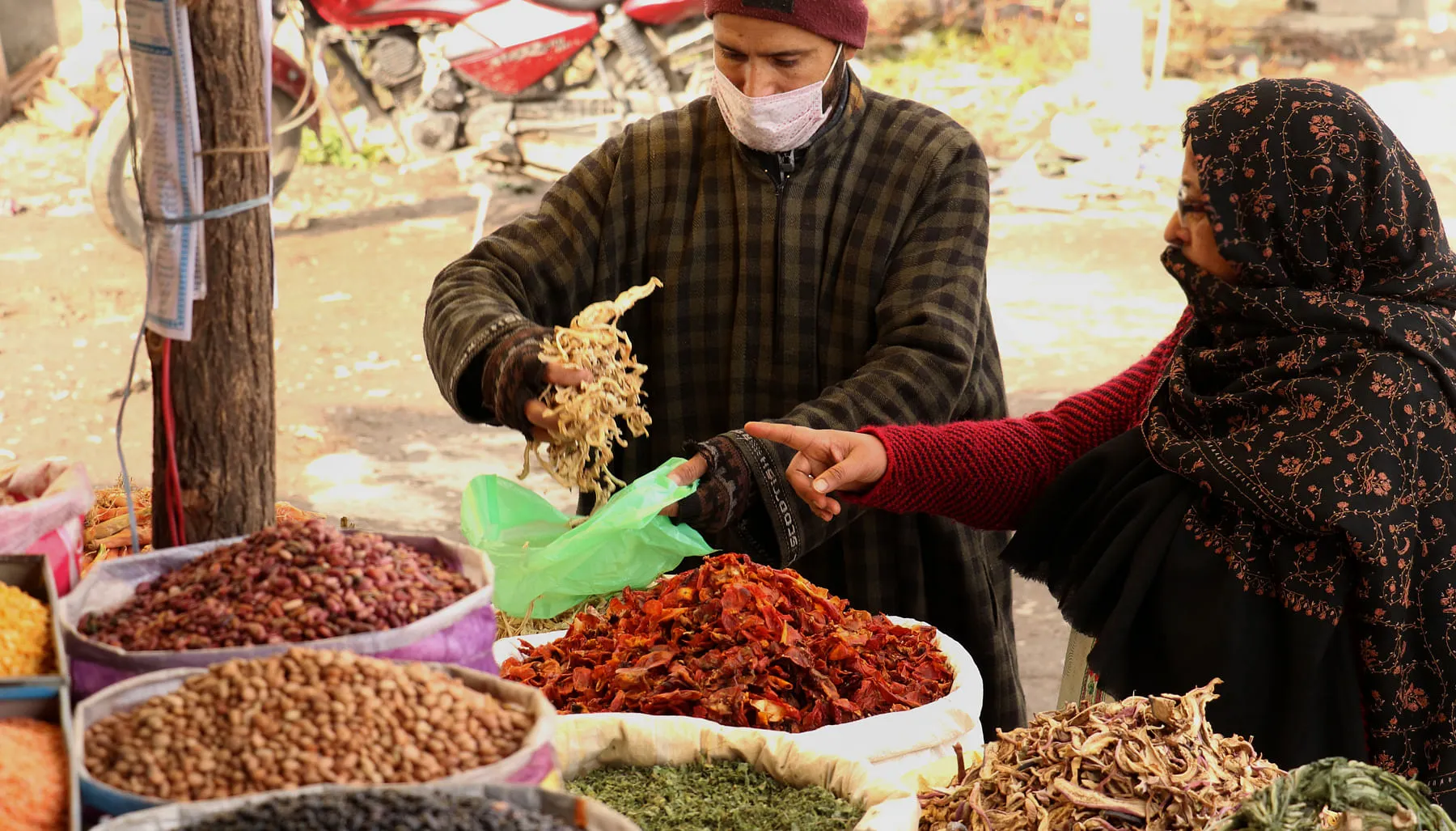Every Friday, Abdul Ahad puts up his ‘dry vegetable stall’ at Hazratbal. The dried vegetables, locally known as ‘Hokhe Suenn’ continue to be part of Kashmir winter cuisine for centuries.
The rush of the devotees at the Hazratbal shrine on Friday brings a lot of customers to Abdul Ahad and other vendors selling the dried vegetables.
The vendors said that the dried vegetables this winter remained in good demand due to extreme cold in Kashmir and repeated highway closures.
“Due to the subzero temperatures this winter, people prefer dried vegetables,” said Abdul Ahad.
The vendors in the market here sell dried tomato, turnip, bottle gourd, brinjal and some other leafy vegetables. “We dry these vegetables for weeks together during summers usually by placing them on the rooftops so as to remain under the open sun, or banding them by a thread into a garland to hang them from walls, etc,” they said.
“Earlier, a handful of vendors would usually sell these vegetables door-to-door or at a few select markets. But now, since the demand has increased, these vegetables remain available almost in every market,” a vendor at Hazratbal said.
Many people prefer dried veggies due to multiple reasons. “Other than sky rocketing of vegetable prices during winters, their quality also sullies when they remain in transit for days together during highway closures. So that time, the dried vegetable is the best alternative you can rely upon,” Sajad Ahmed, a customer from downtown said.
Dr. Sajad Ahmed Darzi, who teaches history in University of Kashmir, said that Kashmir being a place where multiple crops are not grown throughout the year due to its peculiar climate, it has for centuries given rise to dried vegetables.
He says that the central Asian roots of Kashmir, its climate and topography have always made dried vegetables feasible to the Kashmir culinary culture.
“To make much use of these vegetables through winter, for centuries people have been drying these veggies so that they can be used when fresh variants are not available,” he said.
He said that for the reason that the highway remains closed for many days during winters, this culinary culture is to stay. “Many European travelers have documented the culture of dried veggies in the travel logs,” Darzi said.
He said these dried vegetables being healthy and keeping people warm “has been part of Kashmir’s folk mentality for ages”. This folk mentality finds its roots in ancient Greek medicine which is very similar to “our Unani medicine and associate foods”.






